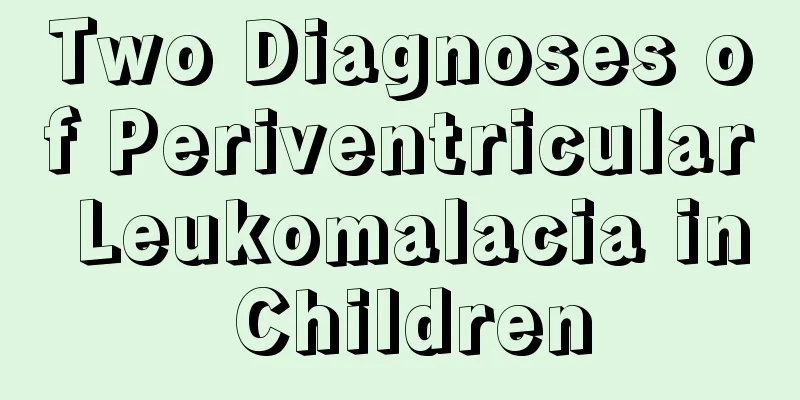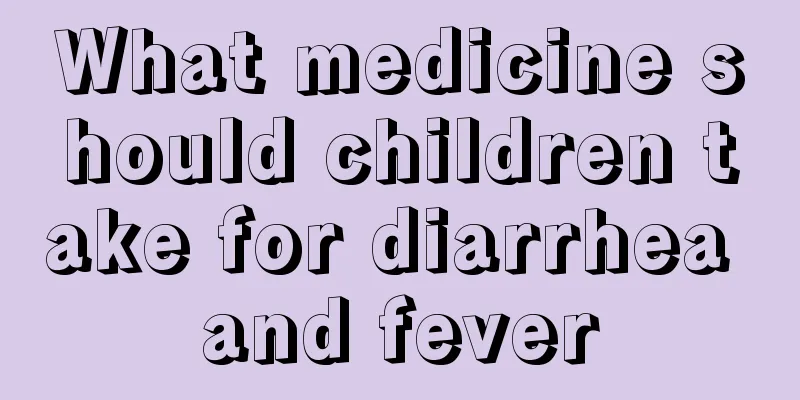What to do if a newborn chokes on milk? The correct way to deal with it

|
Although choking on milk is very common among newborns, parents should not take it lightly. If the baby chokes frequently, it may indicate that there are some health problems with the baby. Mothers should also have the correct posture when breastfeeding. If suffocation occurs, they must go to the hospital in time. 1. Correct handling method Choking on milk is a common abnormal symptom in infants, especially newborns. If the baby accidentally chokes on milk, it is best to first observe the baby's oxygen inhalation and exhalation movements to see if there are any abnormalities (such as weak and dislocated voice, difficulty in breathing, severe chest concavity, etc.). If so, send the baby to the hospital immediately. If the baby cries loudly, with full energy and a rosy face, it means there is no problem. In addition, mothers should pay attention to the breastfeeding posture when feeding their babies. They should put their feet on a small stool, hold the baby well, and use the thumb and index finger of the other hand to gently pinch the nipple to feed the baby to prevent the nipple from blocking the baby's nostrils or causing the baby to choke or spit up milk due to too rapid milk. 2. Specific steps 1. Take immediate action: Because of severe suffocation and inability to breathe, the baby has almost no chance of being admitted to the hospital for emergency treatment, and parents can only race against time to rescue him immediately; 2. Clear foreign objects in the baby's mouth and throat: If the mother has an automatic breast pump, turn it on immediately and use only its hose to insert it into the baby's mouth and throat to suck out the spilled milk and vomit. If there is no suction device, the mother can wrap gauze around her fingers and insert it into the baby's mouth until the throat to suck out the spilled milk to prevent the baby from inhaling the spitted milk into the trachea again when inhaling. 3. Postural drainage: If the baby vomits with a full stomach and suffocates, the baby should be laid flat with his face turned to one side or on his side to prevent vomited milk from flowing into the throat and trachea. If the baby swallows milk too quickly at the beginning of feeding and chokes on milk (empty stomach), the baby should be laid prone on the rescuer's legs with the upper body leaning forward 45-60 degrees to facilitate the emptying and drainage of the milk in the trachea. 4. Assisted exhalation: The focus is on exhalation with a jet force. The method is that the rescuer puts both hands on the upper abdomen of the child and squeezes upwards to increase the abdominal pressure. With the impact force of the diaphragm rising and the chest shrinking, part of the choked milk is ejected from the airway. When the hands are relaxed, the child can re-inhale part of the oxygen. Repeat this process to relieve suffocation. 5. Stimulate crying and coughing: Pat the child's back hard or pinch and stimulate the soles of his feet to make him cry or cough in pain. This will help cough out the milk in the trachea and ease breathing. While the family is performing the above rescue operations, call 120 for help or prepare to rush the patient to the hospital for emergency treatment. |
<<: What are the effects of choking on babies? Beware of choking and suffocation
>>: Why is the child's bottom red? Scientific care for diaper rash
Recommend
What should I eat when my baby has a fever and rolls his eyes?
Colds and fevers are the most common diseases in ...
How to use medicine for children’s vulvar itching?
When we were young, few parents could truly care ...
Why does my baby have bad breath in the morning?
Some mothers may find that their babies have bad ...
How to treat children's lung qi deficiency
Lung qi deficiency in children is a common lung d...
How tall is a 16 month old baby?
After a child is born, many issues concern adults...
Ways to improve physical fitness for children
Everyone should constantly enhance their physical...
Is it really okay for babies to wear socks to sleep?
After the baby is born, every move of the baby is...
How to treat constipation in children?
Constipation in children is common in our lives. ...
What are the symptoms of mild cerebral palsy in children?
Mild blanket in children is a non-progressive bra...
What is the cause of anal pain in children? There are several reasons
Both adults and children may have various problem...
Children's face rash
The rash is a very annoying phenomenon because mo...
What should I do if my baby keeps coughing during the day?
The family is most worried about the baby's h...
Treatment of black ringworm on the scalp in children, these methods must be mastered
Children are very prone to scalp ringworm, mainly...
Black spots in the child's eyes
Many people know that black spots on children’s e...
The baby accidentally drank the floral water
Babies are very curious about all kinds of things...









